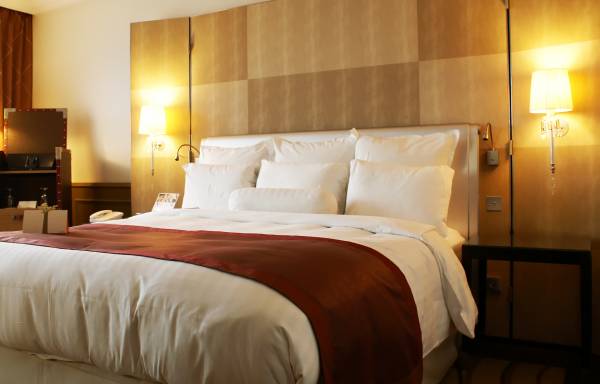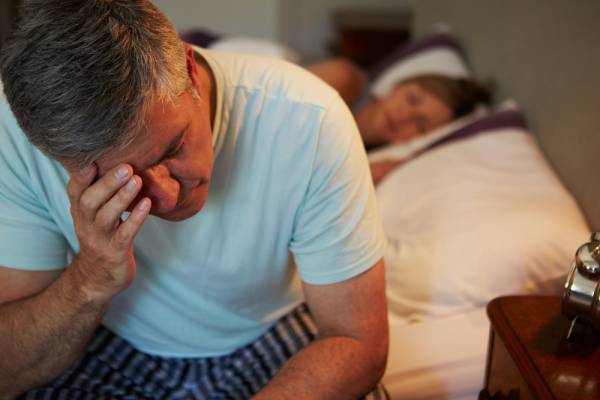Any time I’ve felt pain in my body over the past six years, I’ve blamed Brazilian jiu jitsu. Bearing the weight of people who are at least fifty pounds heavier than I am in every roll can take its toll on the spine. So it made sense when I began experiencing back pain.
My Experience With Back Pain
The pain was so significant that it hurt to walk at times. It definitely hurt to jump. And it hurt to sit and even just be awake. I took months at a time off from BJJ and saw a variety of doctors. I visited an osteopath, chiropractor, massage therapist, sports injury doctor, acupuncturist, and my family doctor. Anyone who could possibly help me, I visited.
I traveled with a heating pad because it eased the pain. I rubbed a transdermal anti-inflammatory cream on my back every morning. I rolled on lacrosse balls and foam rollers. I took muscle relaxers before I went to bed. Nothing solved the problem.
“The pain and exhaustion that resulted from an awful sleeping situation had a big effect on my whole life, especially my training. And not one doctor suggested it might be the bed I was sleeping on.”
My pain began two years ago and it took me about six months to realize the issue was the bed I was sleeping on when I traveled every week. Although I would only sleep on the bed one night at a time, the pain would persist for a week or more afterwards. Only when I had two weeks away from that bed did I identify the culprit.
So here are my tips for shopping for the best mattress for your body and sleeping style, and also tips for how to get the best night’s sleep while traveling. Because of all the elements that factor into your training, your mattress shouldn’t be the thing ruining your performance.
RELATED: 5 Tips for Better Sleep and a Healthier Mind and Body

Your Mattress Matters
I had no control over the furnishings when I traveled so I ended up sleeping on an air mattress during those trips. The problem with an air mattress, even with a high-quality one, is trying to fill it to optimum firmness. A bed without enough support can cause the spine to misalign. As a result, the muscles in your back work hard throughout the night to get it back into alignment. This compensation can cause lasting dysfunction.
When your mattress isn’t suited to your body, it’s not only the pain that can affect your training. All of that tossing and turning you do during the night trying to get comfortable affects the quality of your sleep. Every morning, I would wake up exhausted and in pain, and because of that, I was more prone to other injuries.
READ: How Sleep Deprivation Affects Athletic Performance
During those two years, I learned to avoid being explosive during rolls because my back would suffer for it. I began avoiding guys who used a lot of strength and weight because it was so hard on my body. And wouldn’t you know it, once I stopped traveling, my own bed bit the dust as well. I ended up sleeping on the twin in my spare room as I shopped for a new one.
“It turns out I do need a medium-firm mattress, but because I sleep on my side, I need a plush topper that will allow my body to rest comfortably without pressure.”
It’s only been a month since I replaced my bed, but my back pain has significantly decreased. I didn’t do my research, though, and I ended up buying a bed that is wrong for my sleeping style. I had explained to the sales associate that I had back issues and we agreed a firm foam mattress should do the trick.
Unfortunately, we didn’t discuss how I slept. I’m a side sleeper and even though I’m very light and should be able to sleep on any type of bed, this firm bed puts excessive pressure on my shoulder. I’m waking up in the morning with a pins-and-needles sensation in my arm, discomfort in my spine at the bra line, and that familiar feeling of exhaustion.
The video below provides a visual explanation of how the wrong bed can affect the shoulder and hips.
I went back to the mattress store and explained my new problem to the sales associate. He took the time to assess how I was sleeping and what bed (and pillow, don’t forget the pillow!) would be suitable for all of the issues I’ve been having.
It turns out I do need a medium-firm mattress, but because I sleep on my side, I need a plush topper that will allow my body to rest comfortably without pressure. My new mattress is due to arrive on Saturday and I’m looking forward to an end to this miserable situation.
You can visit Consumer Mattress Reports to find out what bed is right for you based on your sleeping style. Remember to ask about a comfort guarantee before purchasing your bed in case you find yourself in the same situation.

Do You Need a New Mattress?
I always figure that if I have a problem, other people may have the same problem so I like to share when I find a solution. The pain and exhaustion that resulted from an awful sleeping situation had a big effect on my whole life, especially my training. And not one doctor suggested it might be the bed I was sleeping on. Because it is such an intense sport, we all blamed my innocent friend BJJ.
So what are the signs it’s time to replace your mattress set?
- You wake up with pain that gets better during the day.
- You wake up with pins and needles in certain parts of your body.
- You wake up tired after getting a reasonable amount of sleep.
- Your partner experiences the above symptoms. (If he or she is sleeping restlessly, your sleep will suffer, as well).
- Your bed sags, dips, or shows other physical signs of wear.
- Your bed is seven to ten years old.

Travel Tips
Fortunately, I no longer have to travel every week, but I have a few suggestions for those with sensitive backs for when you have to hit the road. Because even if you are willing to deal with back pain, driving without enough sleep can be as dangerous as driving drunk.
- Hotels don’t always rotate their beds regularly, so when you book, explain that you have back issues and ask for the wheelchair-accessible room (if it’s not reserved for someone with a disability). Those rooms aren’t used as much.
- When you find a room with a good bed, book that exact room every time.
- Bring a decent air mattress with you, just in case. Get one with a topper because an air mattress is cold against the skin in cooler temperatures.
- Bring a heating pad and a Rad Roller to soothe your sore back and roll out tight muscles.
- Bring earplugs and an eye-mask or a couple of clothespins to eliminate that gap in the curtains when you close them at night. Another tip is to cover the glare of the alarm clock.
- I also take melatonin if I still can’t sleep.
TRAVEL STRONG: Healthy Travel Tips: Hotel and Lodging
While I researched beds and sleeping styles and pillows and everything I could about sleeping, I found a YouTube channel called Mattress To Go that offered great advice for everything to do with beds. If you’re on the market for something new, make sure you check it out. Good luck and sweet dreams!
Photos courtesy of Shutterstock.






